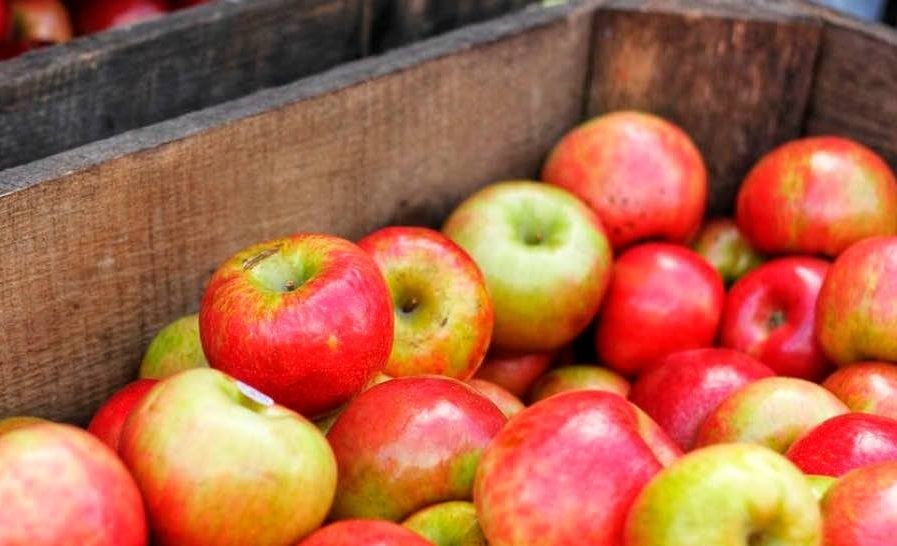
Fruit and vegetable supplier Greenyard has set out targets to grow sales and profits, with M&A a possibility to reach its goals.
The Belgium-based business, which provides fresh, frozen and prepared fruits and vegetables to major European retailers and foodservice clients, has revealed a 2030 plan to “become a plant-based powerhouse”. Under a shorter-term 2025 target, the company aims to increase sales to EUR5bn (US$5.6bn), from EUR4.4bn presently, representing a compound annual growth rate of 5%.

Discover B2B Marketing That Performs
Combine business intelligence and editorial excellence to reach engaged professionals across 36 leading media platforms.
Greenyard also seeks to drive EBITDA to EUR200-210m, an increase of EUR35-45m over the same time span, equating to a CAGR of 6-7%.
“In light of the strategy, Greenyard may also consider M&A opportunities in a very targeted and strict way, in Europe and potentially the USA, and only to the extent that a clear and strong integration process is feasible,” the company said in a statement today (7 December). “The pursuit of selective external growth will further fuel the company’s Strategy 2030.”
Brussels-listed Greenyard embarked on a plan in 2019 to transform the business and improve struggling sales and profits. It increased what was a minority stake in UK peer Bardsley England that year but then exited the business this summer. It has also completed the divestment of its prepared-meals operations in the Netherlands this year.
In its most recent financial year, Greenyard’s sales were up 8.7%, while adjusted EBITDA climbed 17.6% to EUR156.9m. The business posted a net profit of EUR1.2m versus a EUR68m loss in the prior 12 months.

US Tariffs are shifting - will you react or anticipate?
Don’t let policy changes catch you off guard. Stay proactive with real-time data and expert analysis.
By GlobalData“Greenyard is committed to continue investing in convenience, and to accelerate the further widening of its plant-based portfolio. The acceleration will be enabled by a continued step-up in digitalisation across the group. This will allow [us] to respond to current and future consumer needs; and it will directly contribute to a more sustainable food-value chain,” it said.
The company operates in 19 countries and also supplies flowers and plants, employing around 9,000 workers worldwide.
Product innovation and capital investment will also play a part in the strategy. Greenyard aims to increase its offering around low-processed convenience products and will invest EUR30-35m over the next three years to increase capacity and volumes.
Hein Deprez, who shares the CEO seat with Marc Zwaaneveld, said: “We are plant-based by nature. It gives us a head-start and a competitive advantage. Now, as a next step we will push through in what is clearly the right direction. We will step-up our investments in innovation and technology, leveraging the data in the value chain to provide even better products and services to our customers and consumers.”
The company plans to retain a leverage ratio, measured against EBITDA, of 2-2.5 times, which will “create headroom to further invest in other plant-based product development”.
Sustainability also features. Greenyard will seek, using 2019 as a benchmark, to reduce its carbon footprint measured by Scope 1 and 2 emissions by 50% by 2025 and 70% by 2030, with an end target to be carbon neutral by 2050. It will also “stimulate and incentivise” suppliers to implement Science Based Targets for Scope 3.
Greenyard also aims to cut water usage by “another” 10% by 2025. Waste will be reduced by 25% across its operations by 2025 and by 50% five years later. Packaging will be 100% “sustainable” by 2025.
Scope 1 greenhouse gas emissions in 2020-21 were 81,440 ton of CO2 equivalent, compared to 77,903 in 2019, according to Greenyard’s latest sustainability report, which the company referred Just Food to when asked to confirm what its achievements on environmental, social and corporate governance are so far.
Scope 2 emissions in Greenyard’s own operations were 87,081 versus 91,004 over the same respective years. “Market-based” emissions were 62,686 in 2020-21, with no comparison provided.
Volume of water consumption was 4.78m cubic meters in 2020-21, compared to 4.49m in 2019. Volume of waste was 2,112 tons, versus 1,648 tons, again over the same respective years.
Zwaaneveld added: “We are at the heart of change and will accelerate our activities in these products [plant-based], supported by ongoing digitalisation and strong sustainability ambitions. We strongly believe these will be the drivers for a higher growth rate in sales and profitability, complemented by targeted M&A or cooperation – creating additional upsides to our plans.”





